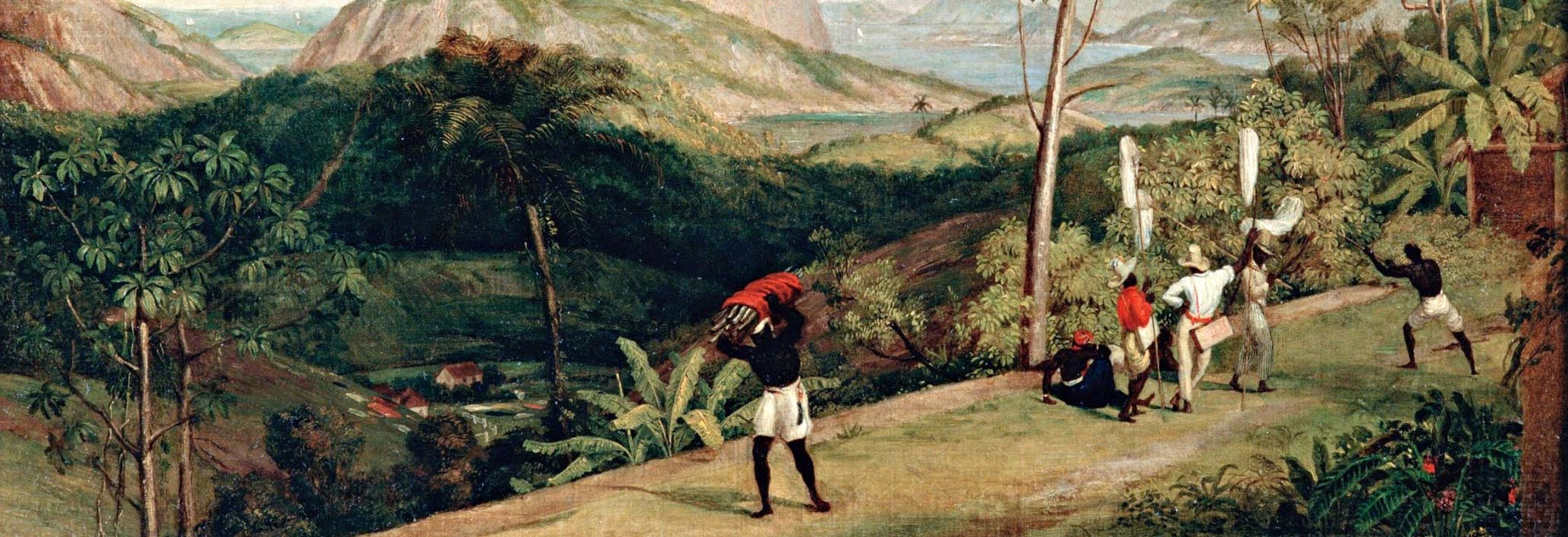James Albert Ukawsaw Gronniosaw, slave narrative author, was born between 1710 and 1714 in Bournou (Bornu), a kingdom in what is now northeastern Nigeria. All that is known about him is found in A Narrative of the Most Remarkable Particulars in the Life of James Albert Ukawsaw Gronniosaw, an African Prince, as Related by Himself (1772), one of the earliest “as-told-to” slave narratives recorded by a white amanuensis. According to this account, Ukawsaw Gronniosaw was the youngest child of the oldest daughter of the king of Bournou. Spiritually dissatisfied with the animist faith in which he was raised, Ukawsaw alienated himself from his friends and relatives by his constant questions challenging their faith in physical objects, as well as by his growing belief in the existence of an uncreated creator. "Dejected and melancholy,” Gronniosaw accompanied a trading African merchant to the Gold Coast, more than a thousand miles from his home, where he had been promised that he could play with boys his own age and “see houses walk upon the water with wings to them, and the white folks.” The local king on the Gold Coast, however, thought him a spy and decided to behead him. Gronniosaw’s obvious courage in the face of death caused the king to sell him into slavery instead.
Gronniosaw then successfully implored a Dutch captain to purchase him after a French slave trader refused to buy him because he was so small. Eventually, a wealthy Reformed Dutch clergyman in New Jersey bought Gronniosaw and introduced him to the English evangelist George Whitefield. Gronniosaw soon experienced despair when he became convinced that his own sins were too great to deserve salvation. Around 1747, after reading the spiritual writings of John Bunyan and Richard Baxter, an attempt at suicide, and a three-day illness, Gronniosaw was spiritually reborn when he recalled the biblical injunction, “Behold the Lamb of God.” Gronniosaw’s newfound happiness was quickly ended by the death of his master, who freed him in his will, and by recurrent spiritual doubts. As a free man, Gronniosaw worked for various members of his late master’s family, all of whom, however, died within four years of the minister’s death.
Gronniosaw decided to go to England because his reading of religious texts by Englishmen led him to believe that there the “people must be all Righteous.” His innocence caused him to be cheated repeatedly, however, and he would soon come to believe that England was ‘worse than Sodom’. With George Whitfield’s help, however, he found housing in London, where he married an English weaver despite his friends’ objections that she was a poor widow. Gronniosaw and his growing family soon fell on hard times because of the ongoing economic depression. Quaker contacts enabled Gronniosaw to find employment outside of London. Unfortunately, much of his work was seasonal, leading to long periods of deprivation and near-starvation during the winters. And he also faced racial discrimination. Ministers of various denominations refused to give his child a proper burial. Gronniosaw died in Chester, England, in September 1775. A Narrative of the Most Remarkable Particulars in the Life of James Albert Ukawsaw Gronniosaw, an African Prince, as Related by Himself (Bath, 1772), which dedicated to the Countess of Huntingdon and dictated to a white amanuensis, initiated the Anglophone tradition of autobiographies written or dictated by former slaves of African descent.
As a foundational text, the Narrative contains many tropes, themes, character types, events, historical figures, and situations that reappear in various ways in subsequent writings by and about African British and African American figures. Perhaps most significantly, Gronniosaw's Narrative introduced in anglophone-African writing the trope of the “talking book,” by which an illiterate African is introduced to the concept of reading. Although Paul Edwards first identified the trope in the narratives of Gronniosaw's, John Marrant, Quobna Ottobah Cugoano, Olaudah Equiano, and John Jea, the significance of the relationship between literacy and freedom was subsequently developed at length by Henry Louis Gates Jr. in The Signifying Monkey (1988).
Read the full, original biography by Vincent Carretta in the African American National Biography
Online Resources
A Narrative of the Most Remarkable Particulars in the Life of James Albert Ukawsaw Gronniosaw, an African Prince, as Related by Himself (Bath, 1772) https://docsouth.unc.edu/neh/gronniosaw/summary.html
Bibliography
Carretta, Vincent. Unchained Voices: An Anthology of Black Authors in the English-Speaking World of the Eighteenth Century. Lexington: University Press of Kentucky, 1996; revised and expanded edition, 2004. Includes the authoritative edition of A Narrative of the Most Remarkable Particulars in the Life of James Albert Ukawsaw Gronniosaw, an African Prince, as Related by Himself (Bath, 1772).
Costanzo, Angelo. Surprising Narrative: Olaudah Equiano and the Beginnings of Black Autobiography (1987)
Gates, Henry Louis, Jr. The Signifying Monkey: A Theory of African-American Literary Criticism. New York: Oxford University Press, 1987. Includes the seminal essay on Gronniosaw and the trope of the “talking book.”
Harris, Jennifer. “Seeing the Light: Re-Reading James Albert Ukawsaw Gronniosaw.” English Language Notes 42, no. 4 (2005): 43–57.
Author
Vincent Carretta
Adapted by
Briona Jones and Steven J. Niven
Contributing Institutions
Hutchins Center for African & African American Research, Harvard University, Cambridge, MA.
Oxford University Press (USA) African American Studies Center.





